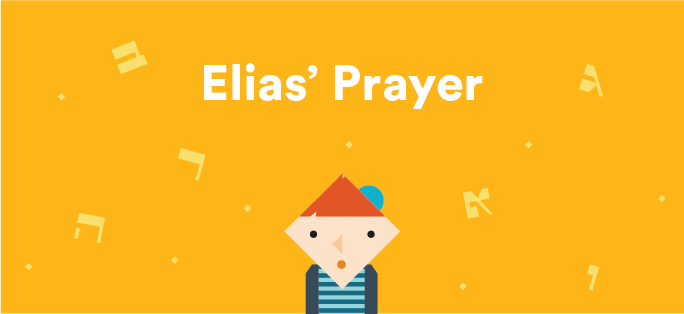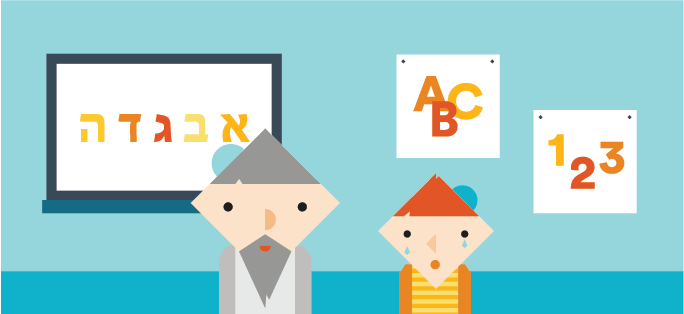
Once, there was a boy who loved letters, especially Hebrew letters. His name was Elias. At yeshiva, Elias would stare at the letters of the alphabet in his exercise book, engrossed, tracing them with his finger. He loved the shape of them. He loved the sound each one made. However, try as he might, Elias couldn’t make sense of the words.

Other students picked on Elias for not being able to read. They called him harsh names. They taunted, “If you cannot read, you will never become a bar mitzvah.” Even his teacher grew so frustrated with Elias that one day, he threw the boy out of class. Sitting sadly on a bench outside the school, Elias picked up a long stick and began to draw Hebrew letters in the dirt. Soon, the rabbi came out and sat beside him. “Rabbi, if I cannot read words, I will never be able to read from the Torah,” Elias told him, a tear sliding down his cheek. But the rabbi looked down at the letters Elias had scratched into the dirt, and stroked his beard. “You may not be able to read the words from the Torah, but you can still lead the congregation in prayer,” the rabbi answered.

Everyone in town shook their heads when they heard Elias was preparing for his bar mitzvah, working for months in the rabbi’s study. When the day finally came, Elias shook with nervous excitement as he stepped onto the bimah of the synagogue.
In his cupped hands, he held the results of those many months of hard work: thousands of paper letters he had cut out with a pair of scissors. He tossed the letters into the air.
What happened next was extraordinary. Instead of fluttering to the ground, the paper letters hovered and swooped around the room, arranging and rearranging themselves. The congregants gazed in amazement. Some would later say they felt calm and connected, as though wrapped in a warm embrace; others would recall feeling animated, excited, filled with the thrill of discovery; still others would say they were flooded with a glowing sense of wonder — a feeling many hadn’t experienced in a very long time.
Those who were there recall that in that moment, the town learned a whole new type of prayer, not better or worse than any other prayers they knew, but equally amazing. Up on the bimah, the rabbi smiled at Elias, and for the first time in a very long time, Elias smiled back.
When you are inclusive, you make room for lives and perspectives different from your own — and in so doing, you embrace your capacity to grow larger than yourself.

Those who were there recall that in that moment, the town learned a whole new type of prayer, not better or worse than any other prayers they knew, but equally amazing. Up on the bimah, the rabbi smiled at Elias, and for the first time in a very long time, Elias smiled back.
When you are inclusive, you make room for lives and perspectives different from your own — and in so doing, you embrace your capacity to grow larger than yourself.


